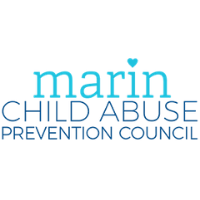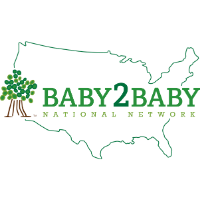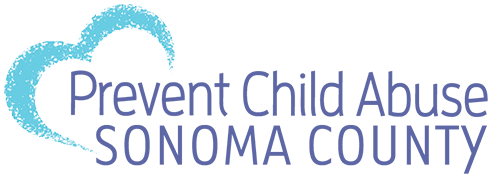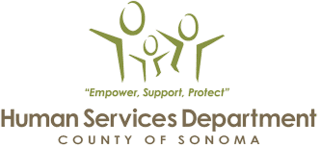
This is a perfect time of year to remind ourselves of the things we’re thankful for. Researchers have found that people who are thankful tend to feel happier, be healthier, be able to handle challenging situations, and build strong relationships. The good news is we don’t have to wait for big celebrations or material gifts to practice being thankful.
Dear CPI,
I know this isn’t your typical parenting question, but can you share some ideas for being thankful and staying positive? I get upset every time I read or hear the news these days and become very worried about the kind of world my kids are growing up in. My partner tells me to focus on the positive and be thankful for what we have, but that’s hard for me to do. I could use some ideas. Thanks.
- Josh
Dear Josh,
I completely understand feeling discouraged by the constant negativity in the news. It's perfectly natural to worry about the state of the world and worry about the future of your children. But it's important to remind ourselves of the things we are grateful for. Here are some ideas to try:
Limit your social media/news time each day. Unplugging from social media and or the news can give your mind a reset. You can use app timers to enforce the limit if needed. Use the reset time for activities that make you feel more peaceful and positive, such as spending intentional quality time with your family. Go for a walk together and take turns sharing things you're grateful for that you notice around you - whether it's the sunshine, birds chirping, or a neighbor's friendly smile. Being present together away from technology and intentionally focusing on gratitude can do wonders for your mindset. And when you do check the news, focus on scanning headlines versus deep diving into opinion pieces that can raise your anxiety.
Build a list of the things you’re thankful for. Write down the things you’re thankful for each day. As the list grows, use it to remind yourself of the things that feel good or are going well in your life. This can help counteract the strong emotions that come up when you hear about or experience negative or stressful events.
Thank your partner for the things they do. It’s common for parents to get so busy with work, managing kids’ schedules, paying the bills, and keeping up with housework that they forget to notice each other. Saying a simple and sincere “thank you” when your partner does things like make a meal or handles a child’s tantrum is a great way to show you notice and appreciate their efforts. This can make your partner more likely to notice and appreciate your everyday efforts.
Doing the same can go a long way with friends and family too. There’s a good chance you’ll make someone’s day, just by showing you appreciate them.
Set a good example for your children by giving thanks to them and in front of them. Children learn how to get along, cooperate, and problem-solve with others by watching, listening to, and imitating people around them. Let your children overhear you thanking your partner and other people. When your children do something that is kind or helpful, say “Thank you,” and tell them what you are thanking them for. This is a form of giving descriptive praise, which is a helpful parenting strategy that encourages children to do more of the positive behavior.
Final Thoughts: Take time to pause and reflect on the things that are going well and make you feel content. When we make thankfulness a daily habit, it can improve our own physical, mental, emotional, and spiritual well-being. And being thankful is usually contagious – like smiling and yawning. The more we give thanks, the more others will, too. That’s an idea worth spreading.
CPI's monthly parenting article provides tips for families raising children, based on the world-renowned Triple P – Positive Parenting Program, available in Sonoma County at CPI. If you have a question or idea for a future column, please email anneb@calparents.org
This article is created by Nicole Young, the mother of two children, ages 17 and 21, who also manages Santa Cruz County's Triple P - Positive Parenting Program. Scientifically proven, Triple P is available locally through the Child Parent Institute. Our classes are listed at calparents.org/classes.
EN ESPANOL
Esta es una época perfecta del año para recordarnos las cosas por las que estamos agradecidos. Los investigadores han descubierto que las personas agradecidas tienden a sentirse más felices, ser más saludables, ser capaces de manejar situaciones desafiantes y construir relaciones sólidas. La buena noticia es que no tenemos que esperar a grandes celebraciones o regalos materiales para practicar el agradecimiento.
Estimada CPI,
Me doy cuenta que esta no es una pregunta típica sobre la crianza, ¿pero podría compartir usted algunas ideas sobre ser agradecido y permanecer positivo? Me aflijo cada vez que leo o miro las noticias en estos tiempos, y me vuelvo muy preocupado sobre el mundo en el cual mis niños están creciendo. Mi pareja me dice que debo enfocarme en lo positivo y sentirme agradecido por lo que tenemos, pero me es difícil. Quisiera tener algunas ideas. Gracias.
- Josh
Estimado Josh,
Entiendo perfectamente que me sienta desanimado por la constante negatividad en las noticias. Es perfectamente natural preocuparse por el estado del mundo y preocuparse por el futuro de sus hijos. Pero es importante recordarnos las cosas por las que estamos agradecidos. Aquí hay algunas ideas para probar:
Limite su tiempo en las redes sociales o los noticieros cada día. Desconectarse de las redes sociales o las noticias puede ayudarle a refrescar la mente. Puede usar los cronómetros en los dispositivos para limitarse si es necesario. Use el tiempo para actividades que le hacen sentir más tranquilo y positivo, como intencionalmente pasar tiempo de calidad con su familia. Salgan a caminar juntos y tomen turnos en compartir las cosas en su entorno por las cuales están agradecidos, ya sea el sol, los pajaritos cantando, o una sonrisa amigable de un vecino. Estar presentes juntos, alejados de la tecnología e intencionalmente enfocándose en la gratitud, puede ser maravilloso para su estado mental. Y cuando sí ve las noticias, enfóquese en solo ver los titulares en lugar de leer en detalle los artículos de opinión que pueden aumentar su ansiedad.
Haga una lista de las cosas que usted agradece. Apunte las cosas por las cuales usted está agradecido cada día. A medida que la lista se alargue, utilícela para recordar todas las cosas que le dan placer o que le van bien en su vida. Esto puede ayudar a contrarrestar las emociones fuertes que surgen cuando usted oye o pasa por experiencias negativas o eventos estresantes.
Agradézcale a su pareja por todas las cosas que hace para la familia. Es muy común que los padres estén tan ocupados con el trabajo, las actividades de los niños, las cuentas y los quehaceres que se olvidan de prestar atención a su pareja. El acto sencillo de decir “gracias” con sinceridad cuando su pareja prepara una comida o se ocupa de un berrinche del niño es muy buena manera de demostrar que usted se da cuenta y agradece sus esfuerzos. Esto también puede hacer más probable que su pareja asimismo note y agradezca los esfuerzos cotidianos de usted.
Exprese su agradecimiento a otras personas que le facilitan la vida o la hacen más agradable. Esto puede incluir a amigos, familiares y vecinos que proveen apoyo físico, emocional, espiritual u otros tipos de apoyo cuando usted lo necesita. También puede incluir cuidadores de niños, maestros, choferes del autobús, proveedores de cuidado médico, bibliotecarios, líderes religiosos, cajeras, meseros – y cualquier otra persona que hace algo bondadoso o servicial para usted y su familia. Es muy probable que esto le alegrará el día, simplemente al demostrar que usted aprecia su trabajo.
Ponga un buen ejemplo para sus hijos al agradecerles a ellos y en frente de ellos. Una de las maneras que los niños aprenden cómo llevarse bien, cooperar y resolver problemas con otras personas es observando, escuchando, e imitando a las personas en su entorno. Permita que sus hijos le oigan agradecer a su pareja y a otras personas. Cuando sus hijos hacen algo bondadoso o servicial, diga “Gracias,” y dígales por qué se les está agradeciendo. Esta es una forma de dar reconocimiento descriptivo, que es una estrategia de crianza que anima a los niños a repetir la conducta positiva.
Reflexiones finales: Tome el tiempo para pausar y reflexionar sobre las cosas que le van bien y le hacen sentirse contento. Cuando el acto de agradecer se vuelve un hábito diario, puede mejorar nuestro bienestar físico, mental, emocional, y espiritual. Y ser agradecido usualmente es contagioso – así como sonreír y bostezar. Cuanto más agradecemos, más lo harán otras personas también. Esa es una idea que vale la pena difundir.
El artículo mensual sobre crianza de CPI proporciona consejos para las familias que crían niños, basados en el programa de crianza positiva Triple P de renombre mundial, disponible en el condado de Sonoma en CPI. Si tiene una pregunta o idea para una columna futura, envíe un correo electrónico a anneb@calparents.org
Este artículo fue creado por Nicole Young, madre de dos niños, de 17 y 21 años de edad, quien también administra el Programa de Paternidad Positiva Triple P del condado de Santa Cruz. Científicamente probado, Triple P está disponible localmente a través del Child Parent Institute. Nuestras clases se enumeran en calparents.org/classes.











